Blog
Insights
The Bulk Wine Balancing Act: How Chilean Grape Group Stays Competitive
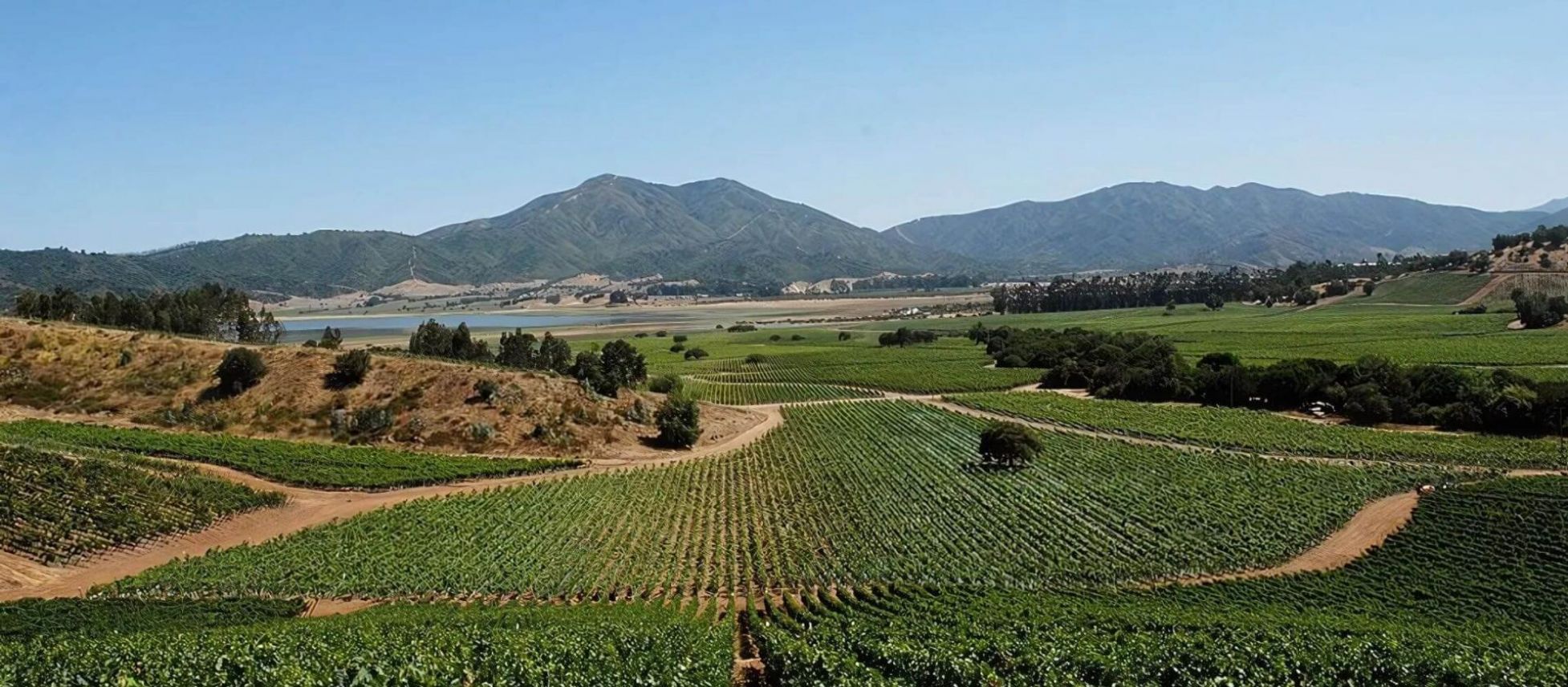
Inside the Bulk Wine Business: Eduardo Alemparte on Challenges and Opportunities
The global bulk wine industry is undergoing a seismic shift. Structural oversupply, changing consumer preferences, and economic pressures are forcing producers to rethink their approach. For Chile, a key player in the bulk wine market, adaptation is crucial. Eduardo Alemparte, Winegrowing Director of the Chilean Grape Group (CGG), a company that has built its reputation on quality, consistency, and long-term relationships with growers and buyers, is ready to adapt to the current market conditions.
In this conversation, Alemparte discusses how CGG is navigating industry-wide challenges, from shifting demand for white wines to exploring emerging markets. He also shares insights into the company’s approach to maintaining financial stability, differentiating itself in a competitive market, and preparing for the future of bulk wine—including innovations in low-alcohol and high-polyphenol wines.
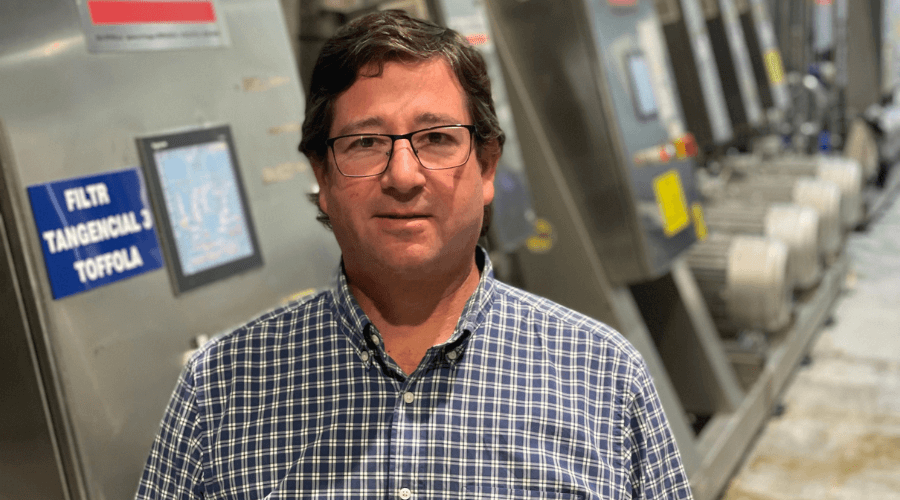
Image: Eduardo Alemparte, Winegrowing Director of the Chilean Grape Group (CGG).
The global wine industry is experiencing a structural oversupply, leading to significant challenges for growers and producers. How is the Chilean Grape Group addressing these challenges? Are there specific strategies you've implemented to maintain profitability and support your growers during this period?
At CGG, many of our producers have been selling grapes to us for a long time; they are one of our main assets as a company. They know they can count on us during tough times. We have often managed to reach agreements that prevent either party from suffering. They understand that their payments will always be on time, and we have always been characterized as a financially solid company. However, in Chile, agriculture is very quick to adapt to changes in supply and demand. Over the past three years, a considerable area of vineyards has been removed, which has led to a rapid adjustment in grape prices.
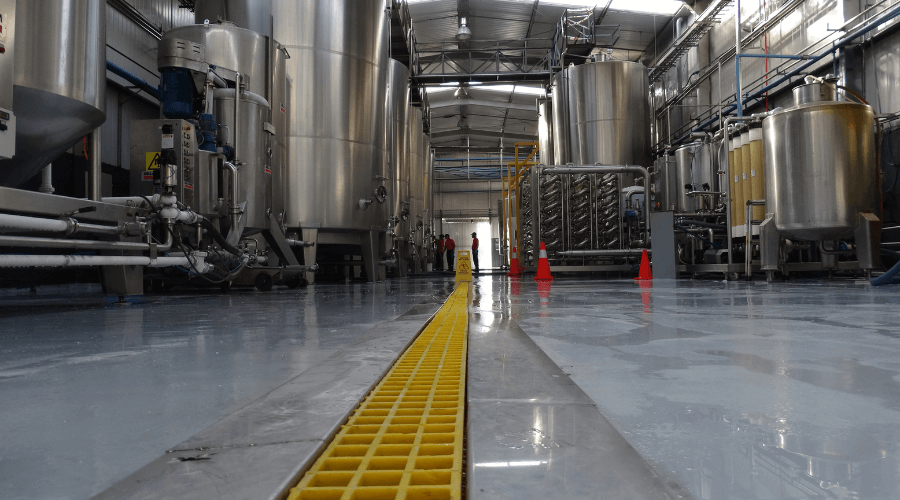
Image: Lourdes winery.
Recent trends indicate a growing consumer interest in white and sparkling wines, signaling a shift from traditional red wine consumption. How has your company adapted to these evolving preferences? Have you adjusted your production or marketing strategies to align with this demand?
Our company has seen significant growth in white wines, forcing us to make certain changes to produce more whites than reds. For the past few years, our white wine sales have surpassed those of red. At CGG, we have cutting-edge technology that allows us to produce high-quality white wines. Our mission is to obtain the maximum qualitative potential from each grape we process. Moreover, our knowledge of the different areas of Chile, along with our relationships with our producers, enables us to obtain high-quality grapes, resulting in white wines that the market demands and that are being consumed in large volumes.
Winemakers have recently found growth opportunities in West African markets, particularly in countries like Ivory Coast and Cameroon. Has the Chilean Grape Group explored or capitalized on similar emerging markets for bulk wine exports? What strategies have proven effective in entering and establishing a presence in these markets?
These countries still pose a challenge for our group. While we have had some approaches, we have not finalized any opportunities. Africa is a destination that is not very explored by the Chilean bulk wine industry. In 2024, only four containers were exported to Africa and at a very low price, making it difficult to establish a sustainable business. However, it is definitely a destination we are watching closely.
One of the constraints in the bulk wine market is the lack of brand recognition, as bulk wines are typically sold without prominent branding. How does the Chilean Grape Group address this issue? Are there specific strategies you employ to differentiate your bulk wine products in a competitive market?
What we never compromise on is quality and consistency. We believe that is our main differentiator because, in the end, this makes us a reliable supplier, which ultimately is what builds a brand. Additionally, we consider ourselves an innovative company and have adapted to producing high-quality wines with low alcohol content, wines without sulfur dioxide, and wines with high polyphenol content. This often allows us to differentiate ourselves from our main competitors.
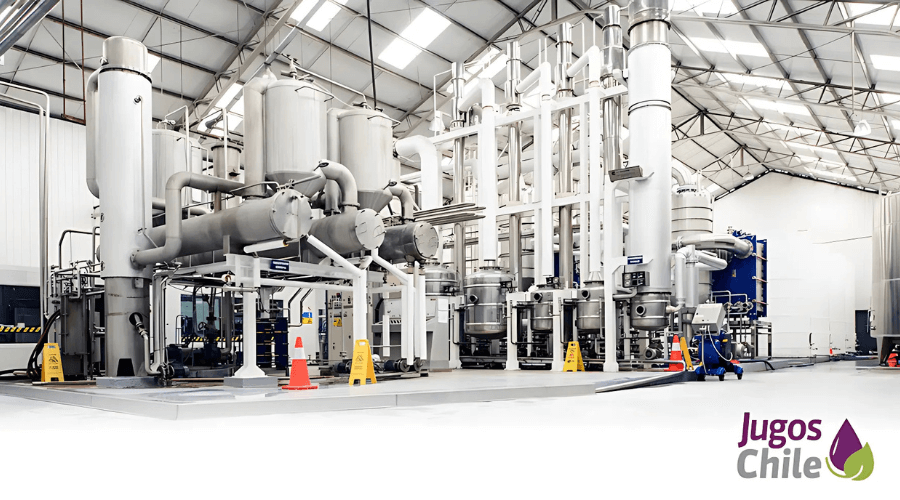
Image Source: Jugos Chile.
The wine industry has faced various economic challenges, including declining domestic consumption and a challenging export market. How have global economic conditions affected your bulk wine operations? What measures have you implemented to mitigate these impacts and sustain growth?
The global economic situation has undoubtedly affected wine consumption worldwide, and we have not been immune to this. It is increasingly difficult to sell, which is why we focus our efforts on being efficient and competitive with our costs. On the other hand, at CGG, we are somewhat more diversified. Currently, we have three business units: bulk wine, bottled wine, and concentrated grape juice. This allows us to create three different products from the same raw material, providing greater stability against market fluctuations.
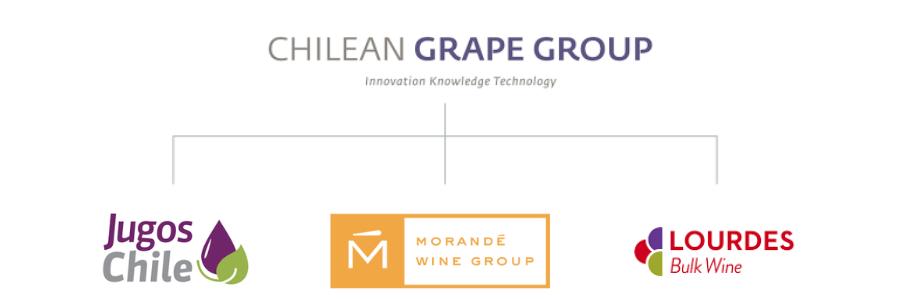
Image Source: Chilean Grape Group.
Is the Chilean Grape Group engaging in partnerships with other wineries, distributors, or retailers to enhance its bulk wine business? What benefits and challenges have you encountered through such collaborations?
At CGG, we are interested in long-term relationships with both our suppliers and customers. While we conduct specific transactions, we maintain very long-term relationships with most of our clients. As mentioned earlier, quality, consistency, and reliability are the best strategies for forming alliances.
[[relatedPurchasesItems-62]]
Looking ahead, what trends do you anticipate will shape the bulk wine market in the next five years? How is the Chilean Grape Group preparing to adapt to these potential changes, and what strategic plans are in place to ensure continued success?
At CGG, we believe that low-alcohol wines are here to stay. For over five years, we have been developing new techniques to produce better wines. Our goal is to make the difference in alcohol content to become imperceptible to the consumer, and we are convinced that we are getting closer to achieving that. Furthermore, the polyphenol content is also a concern for us. Through interactions with the production of concentrated grape juice, we have developed techniques to increase the quality and quantity of polyphenols in our wines. We also have long-term studies of our producers, many of whom are in areas that naturally produce wines with a high polyphenol content. This is how we developed a wine called HAX, which is marketed through our bottled wine unit, and its main characteristic is this, achieving good penetration in various markets.
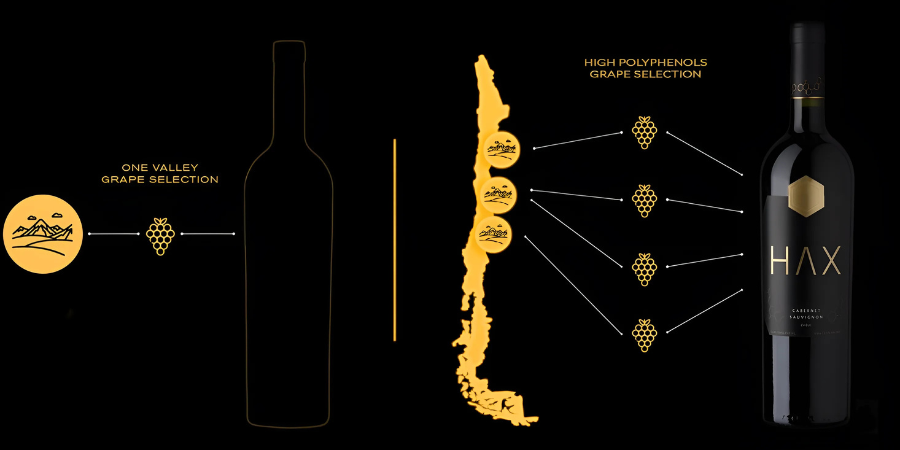
Image Source: Hax wine.
Conclusion:
As the bulk wine industry copes with economic uncertainty, changing consumption patterns, and the need for differentiation, the Chilean Grape Group is betting on adaptability, quality, and strategic diversification. From expanding its white wine production to pioneering innovations in low-alcohol and high-polyphenol wines, the company is positioning itself for long-term relevance in a market that demands both flexibility and reliability.
CGG continues to watch emerging opportunities closely, all while strengthening its presence in more established markets. At its core, the company’s philosophy remains unchanged: long-term partnerships, financial stability, and a commitment to delivering wines that meet evolving consumer demands. As the industry moves forward, those principles will likely be the key to staying competitive in an ever-shifting global landscape.
Header Image: Casablanca Vineyards; source: Morande.
In conversation with Malvika Patel, Editor and VP, Beverage Trade Network
Also Read:
The Ambitious “Wines of Chile” Organization: An Interview with Julio Alonso
Susie Barrie MW and Peter Richards MW Launch “Chile Wines of the Year 2024” with a Bold Vision
Questions and Answers on Chilean Terroir with Julio Bastias of Viña Matetic
If you're a bulk wine or bulk spirits supplier, contract bottler, or private label producer aiming to connect with serious trade buyers, IBWSS San Francisco is the event you can't afford to miss. Get a quotation or Book a exhibitor table.

